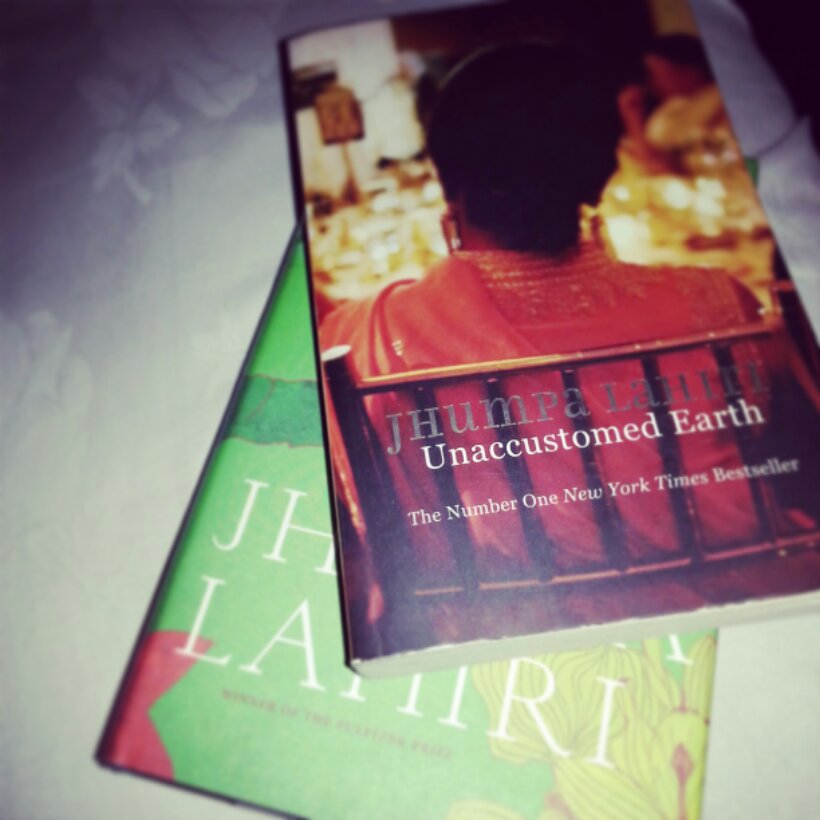I first picked up ‘The Interpreter of Maladies’ while still at school, when the safest way to pick a read was by relying on the awards they had won. It was also the time when I was warming up to the voice of authors in our sub-continent, discovering the joys of stories set in familiar landscapes and with whose protagonists I shared a connection- of geographies, language or culture. Rushdie, Vikram Seth, Arundhati Roy and the likes filled up my book shelf and thoughts, introducing and then transporting me to distant lands and times in my own country. Lahiri’s Pulitzer winning collection of short stories was such an easy read in contrast to the complexities of Rushdie’s narratives that by the time I finished Namesake (her second book and more famously a Mira Nair movie), Lahiri had become one of my favourite authors. Then on, it was all about waiting for her to publish again, while I filled up the time in between reading the others and decoding the reasons for my fondness for her style.
It was through her third book- “Unaccustomed earth” that I could fathom some of these reasons. Most of her stories are weaved between New England, in and around Boston, and Kolkatta, more often than not revolving around Bengali immigrants living in America. Jhumpa, was raised in Rhode Island and studied at the Boston University after her Bengali parents moved to States. Thus her writings are often borrowed pieces from her own life, capturing the dualities of immigrant life in America, expressed either through the questions of individual identity(Namesake) or the dynamics of evolving relationships (various stories from Unaccustomed Earth, Interpreter of Maladies and most recently Lowland). The beauty of her writing lies in the simple construction of the plots, the easy flow of language, the unpretentious subjects – the focus always being on telling the story, simply, honestly as one would narrate from his own life. There are no larger-than-life characters of Rushdie’s fiction in Jhumpa’s writing or extraordinary landscapes of Seth’s . She relies only on the mundane pieces picked up from lives of ordinary people, the profundity of which only compares with life itself.
Soaking them in the intricacies of a particular culture conveyed effortlessly to the non-Bengali reader.
And if you care to look closely through her common themes – the dysfunctional family ties, the dichotomy of independence and isolation in a foreign land or the intrinsic battles that come with selfish choices- they are reflections of every life’s dilemmas.
Sometimes her disparate stories seem so strangely linked that I have often tried to connect the dots to form the pieces of her life’s story. Wondering which of her characters or part of them among the sister, the lover, the wife, the mother or the rebel is/was Jhumpa herself.
She is the only author I have bothered to read every work of. The only author whose books I have happily lent, whose stories about siblings I have read to my brother to convey an inexplicable emotion(because he refuses to read anything himself) and because these writings ought to be shared. And if it is possible to be inspired by a writing style, or emulate the impact of a story, it is hers that I would want to embody in my future book(if that ever happens). She is the reason, New England has come to occupy a space in my head, the possible witness to the stories I have read.
I recently finished her latest offering -‘The Lowland’, that had my partner competing for time and attention through the Christmas holidays. The story that travels between the turbulence of the Naxal movement in dense Kolkatta to the quietude of university life in the sparse New Hampshire, deserved a reading under the warmth of the winter sun.
However, my “comfort read” (much like the comfort food we crave every now and then to restore emotional balance) remains her collection of stories from the “Unaccustomed Earth”. I have read and re-read it when I have wanted to read nothing else. Like that timeless movie we can always watch, knowing that it remains brilliant even when you have grown out of other stuff that you once fancied. When even though you know how it concludes, it is the journey that most interests you, the pauses when you look up from the pages to fully grasp and assimilate a sentence.
Have you read Jhumpa Lahiri yet? If not, read her before this winter ends and you won’t regret it.
If you have, what is your favorite story?



Glad to know that you are thinking about writing a book! 🙂
LikeLike